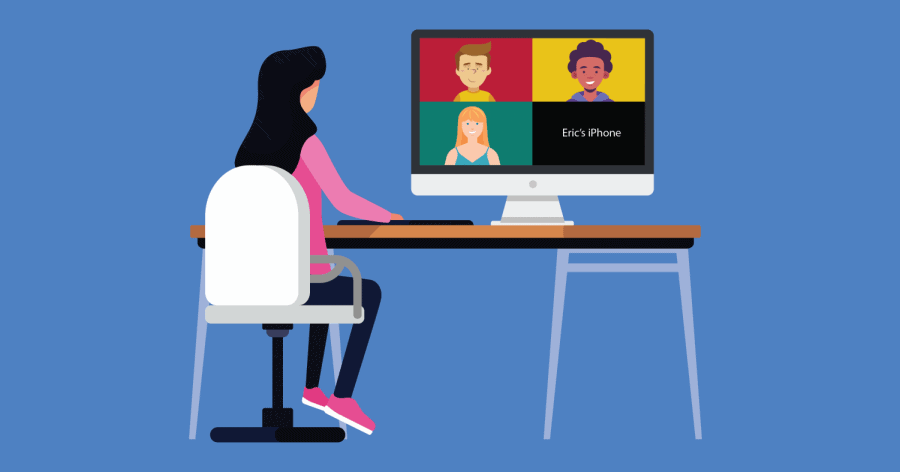Opinion | Zoom University is unhealthy for students
October 11, 2020
Instead of grabbing my backpack and walking to the Quad, I rolled out of bed ten minutes before class, grabbed my laptop and blue light-blocking glasses and sat down for my first full day of Zoom University.
Switching from in-person to remote classes seems like a small sacrifice to make during a global pandemic, but the toll that Zoom University has taken is very real. Sitting in front of a computer screen all day is not only boring, it is unhealthy. Professionals have started to conduct more research on the effects that sitting has on your health. Sleep researchers and business journalists have observed how stress builds over time, suggesting that individuals should move every 90 minutes to prevent loss of blood flow and circulation. But at Zoom University, where is there to walk? To the kitchen and back for a snack?
The negative mental and physiological effects of Zoom University are just as bad. Headaches and fatigue are the new norm thanks to hours on end spent staring at Zoom. The lack of human interaction is enough to make one begin to doubt their social skills since the Zoom platform cannot facilitate the same level of participation for many courses. Additionally, because class sessions are recorded, many professors do not require students to turn on their cameras out of respect for privacy.
Indeed, many of the “classes” this year are essentially glorified podcasts, pre-recorded lectures that teachers assign their students to watch. Without participation or the need to appear on screen, it can be a struggle to focus. Staring at a computer screen in your bedroom simply does not command a student’s attention and concentration in the same way that a live lecture from a professor in a classroom does. So why exactly are students paying up to $70,000 a year for a college education just to stare at a computer screen for the majority of their day?
Beside the questions of the monetary value of remote learning, there are also doubts about the effectiveness of the education. How much learning do these pre-recorded lectures actually facilitate? And with professors unable to conduct exams in-person, how much time are students actually spending on studying when they can easily use their notes?
The long-term effects of Zoom University on health, academics and social life are far from understood, but it is safe to say that this semester will be like no other and will present its own unique set of challenges.











